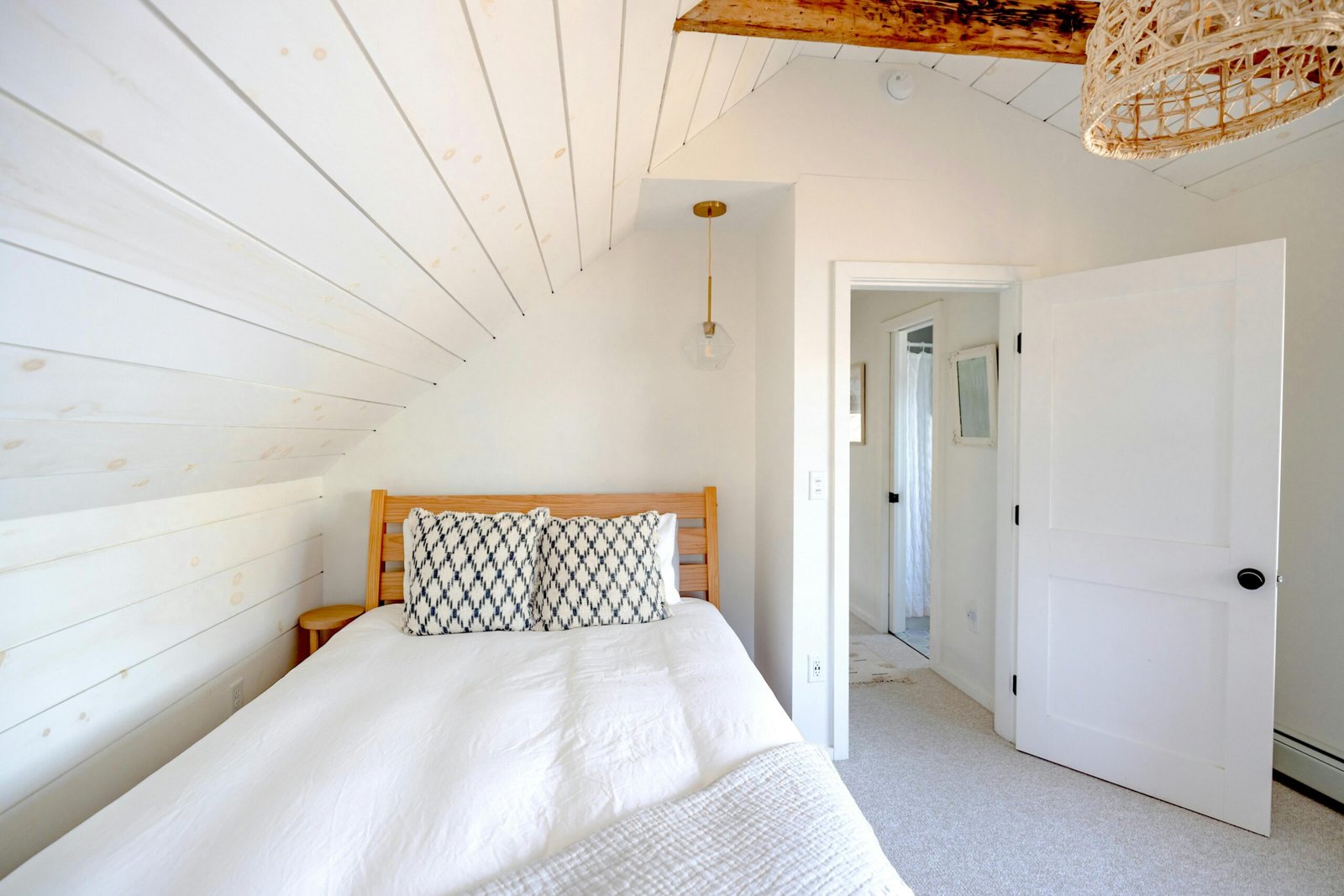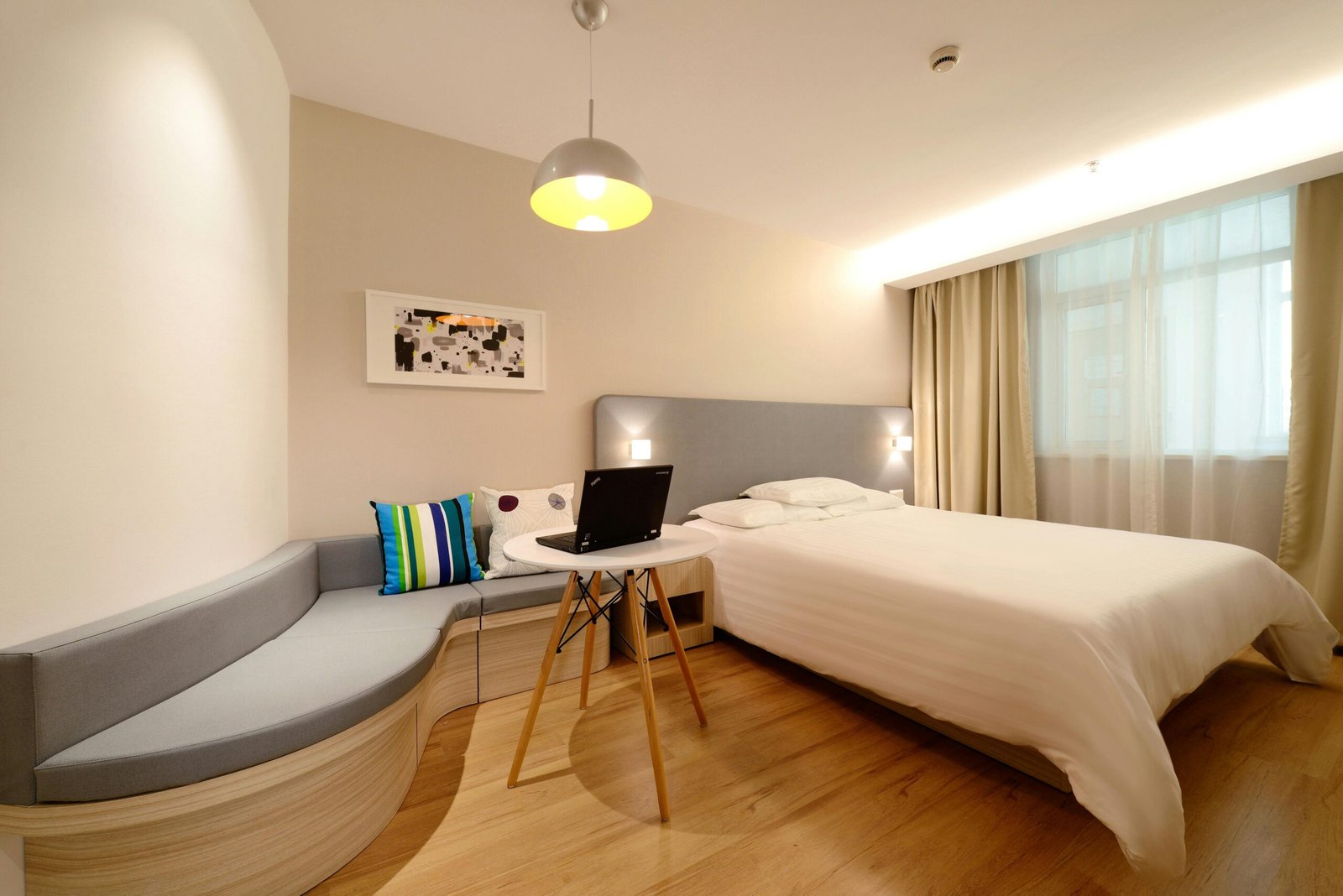Airbnb arbitrage is an increasingly popular strategy in the world of real estate investment and short-term rentals. It has garnered attention for its potential to generate passive income, often with little upfront capital compared to traditional property ownership. In this article, we’ll delve into what Airbnb arbitrage is, how it works, the benefits and risks associated with it, and provide tips on how to succeed in this competitive market. If you have an Airbnb property and are looking to model out your properties, we have full financial model templates that have been popular with customers who have Airbnb or short-term rental properties. You can find them here: Airbnb Financial Model, Vacation Rentals Hotel Financial Model and Short-Term Rental Financial Model.

What is Airbnb Arbitrage?
Airbnb arbitrage involves renting a property long-term (typically on a 12-month lease) and then subletting it on platforms like Airbnb, VRBO, or Booking.com for short-term stays. The goal is to make a profit by charging higher nightly rates on the short-term rental platform than what is paid for the long-term lease. This difference in rental income is the “arbitrage”—hence the name of the strategy.
While the concept of arbitrage in business is not new, Airbnb arbitrage has become particularly attractive due to the rise of short-term rental platforms. With Airbnb arbitrage, you don’t necessarily need to own the property to generate income from it, making it an appealing option for those looking to break into real estate investing without the significant upfront capital typically required for buying property.
How Airbnb Arbitrage Works
The typical process of Airbnb arbitrage can be broken down into a few key steps:
- Find a Rental Property:
The first step in the Airbnb arbitrage process is to find a property to rent. Ideally, the property should be located in a high-demand area—such as a popular tourist destination, a business hub, or a location with limited hotel options. The better the location, the higher the potential for a lucrative short-term rental income. - Negotiate the Lease:
Once you’ve found a suitable rental property, the next step is to negotiate a lease with the landlord. This can be one of the trickier parts of Airbnb arbitrage, as many landlords are not familiar with or open to the idea of subletting properties for short-term rentals. However, if you approach the situation transparently and demonstrate the financial benefits for the landlord, some may be open to the idea. A typical agreement might involve you renting the property long-term and subletting it on Airbnb. - Furnish and Design the Space:
Unlike traditional long-term rentals, properties used for Airbnb arbitrage need to be furnished and designed to appeal to short-term guests. This means you may need to invest in quality furniture, decorations, and amenities. The space should feel welcoming, functional, and aesthetically pleasing to attract guests and encourage positive reviews. - List the Property on Airbnb:
Once the property is ready, you’ll list it on Airbnb and other short-term rental platforms. Crafting an appealing listing with high-quality photos and a compelling description is key to attracting guests. Additionally, you’ll need to set a nightly price based on factors such as the property’s location, size, amenities, and the rates of comparable listings in the area. - Manage the Property:
After the property is listed, you will need to manage bookings, guest communication, cleaning, and maintenance. Some Airbnb hosts choose to hire property management companies to handle these tasks, but it can be done independently with the right systems in place. Guest satisfaction is essential for maintaining high occupancy rates and earning good reviews, which in turn can lead to higher rental prices. - Collect the Income:
Once guests start booking your property, you’ll begin to collect the rental income from the Airbnb platform. This income should exceed the monthly rent you’re paying to the landlord, allowing you to keep the difference as profit.
The Benefits of Airbnb Arbitrage
Airbnb arbitrage can be a lucrative business model, offering several advantages to those who approach it strategically.
1. Low Startup Costs
One of the biggest advantages of Airbnb arbitrage is the relatively low barrier to entry. Traditional real estate investments typically require significant capital to purchase a property, along with additional costs for maintenance, taxes, insurance, and other fees. In contrast, with Airbnb arbitrage, you only need to cover the costs of renting the property, furnishing it, and managing the short-term rental. This can be a far more accessible option for individuals who want to get started in real estate investing without needing large sums of money upfront.
2. Flexible Scaling
Airbnb arbitrage also offers scalability. Once you’ve successfully set up one property, you can apply the same strategy to additional properties. With careful management, it’s possible to scale up your business by renting multiple properties in different locations and managing them efficiently.
3. Potential for High Returns
Short-term rentals on platforms like Airbnb can generate significantly higher rental income compared to long-term leases. In popular areas, it’s not uncommon for short-term rentals to bring in several times the amount of rent compared to traditional long-term tenants. For example, a property that rents for $2,000 per month on a long-term lease might be able to generate $150–$300 per night on Airbnb, which could amount to over $4,500–$9,000 per month.
4. Control Over the Property
With Airbnb arbitrage, you have more control over the property than a traditional tenant would. You can set your own pricing, choose your guests, and customize the space to fit the needs of short-term visitors. This level of control allows you to optimize for profitability by adjusting your strategy based on demand.
5. Diversification of Income Streams
If you already have other sources of income, Airbnb arbitrage can serve as a complementary stream of revenue. This diversification can provide financial security and help cushion against economic downturns, especially if you’ve set up multiple properties.

The Risks of Airbnb Arbitrage
While Airbnb arbitrage can be profitable, it’s not without its risks. Understanding these risks and how to mitigate them is essential before diving into this business model.
1. Legal and Regulatory Issues
The legality of Airbnb arbitrage varies by location. Many cities have introduced regulations restricting or banning short-term rentals due to concerns about housing shortages, neighborhood disruptions, or tax issues. Some cities require Airbnb hosts to obtain specific permits, pay taxes, or comply with zoning laws. It’s essential to research the local laws and obtain the necessary permissions before embarking on an Airbnb arbitrage business.
2. Landlord Approval
Securing the approval of the landlord is one of the most significant hurdles in Airbnb arbitrage. Many landlords may be hesitant to allow subletting, especially for short-term rentals. If a landlord refuses to grant permission or becomes uncomfortable with the idea, you may find yourself in breach of the lease agreement, which could lead to eviction or legal action.
3. Market Volatility
The short-term rental market can be volatile and is influenced by factors like seasonality, local events, and broader economic conditions. During off-peak seasons or times of economic uncertainty, demand for short-term rentals may decrease, leading to lower occupancy rates and reduced profitability. Additionally, competition can be fierce, especially in popular tourist destinations, which can make it challenging to maintain high occupancy rates.
4. Management Hassles
Managing an Airbnb property involves a significant amount of work. From handling guest inquiries and bookings to coordinating cleaning and maintenance, the day-to-day responsibilities can be time-consuming. If you have multiple properties or are managing your property part-time, the workload can become overwhelming. Many Airbnb hosts hire property managers or outsource tasks, but this reduces profit margins.
5. Unexpected Costs
There are many unexpected costs associated with short-term rentals. For example, damage to the property, extra cleaning fees, or maintenance issues can arise unexpectedly. If these costs are not carefully budgeted for, they can erode your profit margins. Additionally, if a guest leaves a poor review, it can hurt your future bookings, forcing you to spend more money on marketing or lowering your rates to stay competitive.

Tips for Success in Airbnb Arbitrage
If you’re considering Airbnb arbitrage, here are some tips to help you succeed:
1. Research Local Markets
Before committing to any property, conduct thorough research on the local short-term rental market. Understand the demand in the area, what type of properties are in high demand, and what price range is most competitive. Look at similar listings on Airbnb to get a sense of how much you can charge per night.
2. Negotiate Favorable Lease Terms
Negotiating a lease that allows subletting and Airbnb usage is crucial. Make sure the lease clearly spells out your rights to rent the property on short-term rental platforms, and try to secure a lease with favorable terms (e.g., the option to renew or lower rent if demand drops). Some landlords may be open to offering you a rent discount in exchange for keeping the property in good condition and guaranteeing occupancy.
3. Invest in Professional-Grade Photography
The quality of your listing is directly tied to your ability to attract guests. High-quality, professional photos can make a huge difference in booking rates. Invest in good lighting and ensure that your photos showcase the property’s best features.
4. Provide Excellent Customer Service
As an Airbnb host, your reputation is everything. Provide exceptional customer service by responding to inquiries promptly, being flexible with check-in and check-out times, and offering personalized touches that make guests feel welcome. Happy guests are more likely to leave positive reviews, which will help you get more bookings in the future.
5. Factor in All Costs
Don’t forget to account for all expenses when calculating potential profits. In addition to rent, consider the costs of furnishing the property, utilities, cleaning fees, property management services (if any), insurance, and taxes. Ensure that your expected nightly rate and occupancy rate will generate enough income to cover these costs and leave room for profit.
6. Stay Up to Date on Regulations
Always stay informed about local regulations related to short-term rentals. This will help you avoid legal issues and fines. If possible, consult with a local attorney to ensure compliance with any relevant laws in your area.
Final Thoughts!
Airbnb arbitrage offers an exciting and relatively low-cost opportunity to enter the short-term rental market and generate significant income. While it requires careful planning, market research, and diligent management, it can be a highly profitable business model for those who are willing to put in the effort. However, it’s important to weigh the risks—such as regulatory challenges, landlord approval, and market volatility—against the potential rewards. With the right strategies and a solid understanding of the market, Airbnb arbitrage can be a sustainable and scalable way to build wealth and create a successful real estate business.
Other excellent articles you may find useful: Is AirBNB Arbitrage a smart move nowadays?, What Is Airbnb Rental Arbitrage?, Rent as an expense for Airbnb rental arbitrage and Airbnb Millionaire Shares His Rental Arbitrage Insights.




